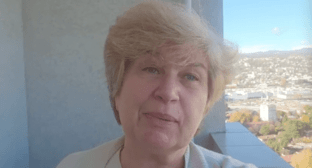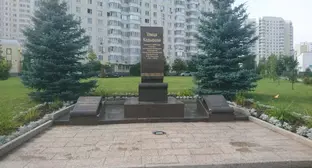05 July 2021, 16:50
Week in the Caucasus: review of main events of June 28-July 4, 2021
Special operations in Nalchik and Astrakhan; compulsory vaccination against coronavirus in Southern Russia; start of the LGBT week in Tbilisi, – see the review of these and other events in the Caucasus during the week of June 28-July 4, 2021, prepared by the “Caucasian Knot”.
Special operations in Nalchik and Astrakhan
On July 3, a counterterrorist operation (CTO) legal regime was introduced in Nalchik and Baksan. According to the National Antiterrorist Committee (NAC), during the special operation, five persons were killed who plotting terror acts. According to the investigators’ version, law enforcers cordoned off two armed groups of five suspects, and all of them were killed. The number of the killed suspects included Khasanbi Khupsergenov, who was sentenced in a case on an attack on Nalchik in 2005, journalist Nadezhda Kevorkova reports. Khasanbi Khupsergenov was among those who came under pressure from the law enforcement bodies after their complaints had been accepted by the European Court of Human Rights (ECtHR), notes Rustam Matsev, a lawyer for the “Legal Initiative”*. The CTO in Nalchik became the first special operation introduced in the region since September 2019.
On July 1, the FSB announced a special operation in a village in the Astrakhan Region. A supporter of the “Islamic State” (IS, a terrorist organization, banned in Russia by the court, – note of the “Caucasian Knot”) was killed there, while his accomplice was detained in Moscow, the law enforcement bodies reported. Both were suspected of plotting an attack on residents of Moscow and the Astrakhan Region in crowded places.
Appeals from residents of Southern Russia to President Putin’s direct line
On June 30, Russian President Vladimir Putin held the so-called “direct line,” during which he answered questions from residents of Russia, including those from the Southern Federal District (SFD) and the North-Caucasian Federal District (NCFD).
Residents of Southern Russia recorded video appeals to the Russian President before the beginning of the direct line. For example, forced migrants who moved to Ingushetia during the war in Chechnya are waiting for a solution to their housing problem. They explained their appeal to President Putin by their despair and hope that the leader of the state would instruct officials to solve their long-standing problem. Among those who tried to attract the President’s attention were residents of Belorechensk, who protested against the construction of a new landfill there, and workers of a mineral water bottling plant in the Stavropol Territory, which was stopped because of a conflict over a road.
Compulsory vaccination against coronavirus in Southern Russia
After on June 16, Chechen leader Ramzan Kadyrov threatened to impose severe restrictions in connection with the low rates of vaccination against COVID-19 in the region, residents of the republic are increasingly complaining about forced vaccination. In Chechnya, to get people vaccinated, officials threaten local residents with dismissals, evacuation of cars, and refusals of medical assistance or issuance of official documents. It became difficult for residents of the republic to make purchases, including at pharmacies, or visit cafés without vaccination certificates. Since July 4, the Chechen authorities have banned people from using public transport without masks. The visiting rate of mosques and churches in Chechnya has been reduced to 50%, subject to the mask regime and the provision of vaccination certificates.
After the Krasnodar Territory, the Rostov Region has become the second region of Southern Russia which has introduced the compulsory vaccination. On July 1, the Rostov Region’s chief medical officer obliged employers to vaccinate most service workers against coronavirus and explained the decision by an increase in the number of infected and low rates of vaccination. In other regions, the local authorities are still acting more leniently. So, on June 28, the leader of Kabardino-Balkaria called on officials to set an example for the population by active vaccination, while the leader of Ingushetia recommended that employers should ensure that 60% of employees are vaccinated by August 1.
Start of LGBT week in Tbilisi
On July 1, in Tbilisi, the LGBT Week, which is expected to end with a gay parade, began with the screening of the British film about the “March of Dignity-2019”. Before the film screening, participants of the action for the preservation of traditional values held a gathering. Several dozen activists threw plastic bottles and eggs at those who were going to attend the screening of the film. The activists also tried to break through the police cordon and were shouting threats against sexual minorities. The police detained 20 protesters, and one policeman was injured.
Even before the beginning of the LGBT Week, the “Unity, Essence, Hope” Party, known with its Georgian abbreviation ERI, called on the authorities to ban the “March of Dignity” and threatened with holding contractions. Georgia’s Ombudsperson Nino Lomdjariya called on the police to ensure the safety of participants of the “March of Dignity”. The UN, the European Union, and the embassies of 16 countries called on the Georgian authorities to prevent violence during the “March of Dignity”. The Georgian Patriarchy called on foreign diplomats to refrain from supporting the gay pride parade and stated that the gay action “had nothing in common with dignity.” According to political analysts, the LGBT topic no longer causes a violent reaction in Georgian society and local politicians are not afraid to drop their rating by speaking out in support of LGBT people. However, there is no improvement in the situation with respect to the rights of sex minorities in the country, political analysts note.
Sentence of former leader of Volgograd Communists
On July 1, in Volzhsky, a court found Nikolai Parshin, the former member of the State Duma of Russia from the Communist Party of the Russian Federation (CPRF), guilty of fraud and sentenced him to three years of imprisonment. The defence claimed that investigators had failed to provide sufficient evidence in the case and called the verdict the result of a slander. Nikolai Parshin pleaded not guilty and claimed his case was a political order. In 2016, the defendant passed a lie detector test. According to the results of the test, the former member of the State Duma was telling the truth.
The organization is included by the Russian Ministry of Justice (MoJ) in the register of NCO-foreign agents.
This article was originally published on the Russian page of 24/7 Internet agency ‘Caucasian Knot’ on July 5, 2021 at 09:21 am MSK. To access the full text of the article, click here.




